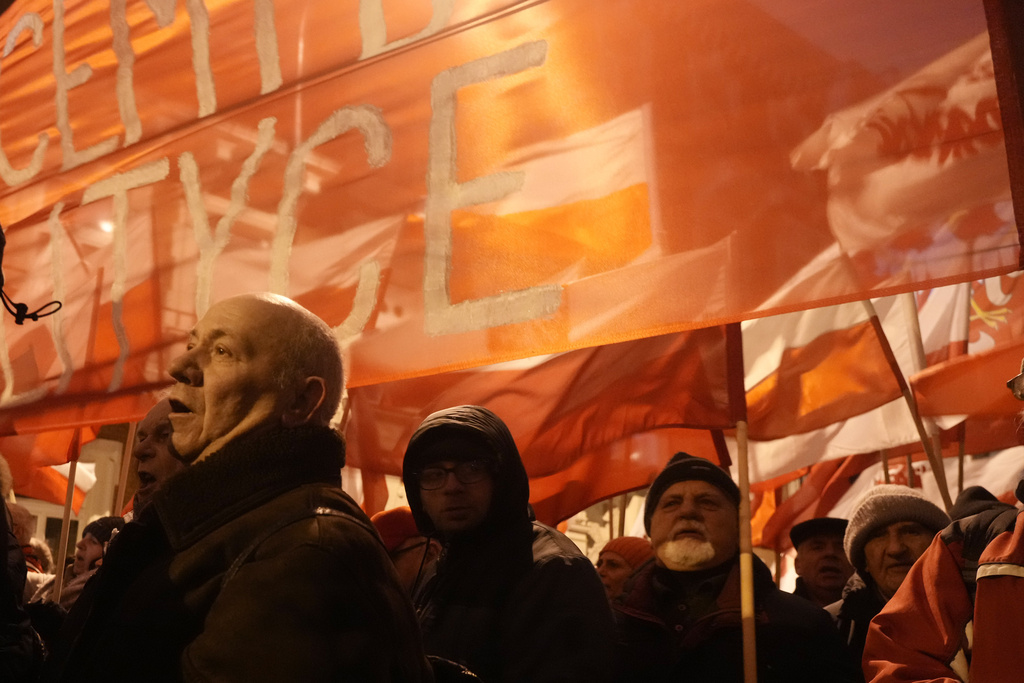After a month of center-left rule in Poland, many citizens may begin to view the preceding years under Prime Minister Mateusz Morawiecki can be marked as a time of calm and predictability. This reflects a significant shift in the political landscape, where the arrest of opposition politicians Mariusz Kamiński and Maciej Wąsik signifies an escalating conflict at the highest levels of power.
The aggressive and legally dubious nature of these arrests by Donald Tusk’s operation points to a worrying trend: the disregard for legal norms and the undermining of presidential authority. Tusk’s approach seems to prioritize complete domination of the national scene over legal and democratic processes.
Tusk’s strategy is not only about gaining power but also about catering to the most vengeful segment of his party’s electorate. This approach, as noted by journalist Tomasz Wróblewski, can lead to an escalating cycle of revenge and injustice.
“History knows many cases where politicians ruled by satisfying the lowest instincts of an electorate hungry for revenge. The problem is that this process cannot be stopped. The sense of injustice will intensify, not diminish, as retaliatory actions escalate. […] It’s not about justice, but about a sense of devaluation among this part of the electorate. Something that doesn’t disappear after putting two deputies in prison. Every day, more and more ‘guilty’ people are needed to fill the political void,” warned Wróblewski in his social media post.
The current state of affairs is particularly perilous considering the lack of a universally accepted method for determining the legitimacy of legal interpretations in Poland.
Meanwhile, the situation has led to an increase in public distrust towards the government. Incidents like the arrest of PiS MPs at the Presidential Palace and the controversial actions within the media sector raise serious concerns about the abuse of power.
The arrest of Mariusz Kamiński and Maciej Wąsik at the Presidential Palace was a slap in the face for the president — a brutal breach of any hope for even a symbolic consensus between the head of state and the center-left coalition. The president must brace for further demonstrations of disdain for his authority by the Civic Platform (PO) party.
Unfortunately, it is hard to consider the head of state’s response to this attack as well-thought-out. First, the day after the police action, there was a somewhat lackluster speech with a proposal for some agreement with Tusk’s team. Then, on Thursday, Jan. 11, the head of state decided to initiate a new clemency procedure for Mariusz Kamiński and Maciej Wąsik and appealed for the release of the two deputies.
The situation is further complicated by the political strategies of key figures around the president, like Marcin Mastalerek and Andrzej Zybertowicz, whose proposals and actions have raised questions about their effectiveness.
The chief of the president’s cabinet, Marcin Mastalerek, three months ago, damaged the president’s relationship with PiS by nonchalantly advising that Jarosław Kaczyński should retire from politics. And yet, PiS is currently the only significant force that can be an ally to Andrzej Duda. The proposals of Andrzej Zybertowicz, the president’s advisor, to engage in talks about reforming public media and the justice system in a tripartite format of the president, government, and opposition, also made an unclear impression. All this came at the cost of PiS admitting that the TVP under Jacek Kurski and Mateusz Matyszkowicz was “not high-quality media.”
Despite the challenges, the main opposition party, PiS, appears mentally prepared for conflict with Tusk. Their ability to mobilize support, even under adverse conditions, was demonstrated in a huge opposition march on Jan. 11 in Warsaw.
The international dimension is also crucial. The European Commission’s silence on these internal matters contrasts sharply with its previous outspokenness during PiS’s rule. Germany’s support for Tusk’s actions and the discreet silence of the U.S. embassy suggest a reconfiguration of international alignments concerning Poland. Russia, viewing Poland as an adversary, is likely closely monitoring the situation, potentially ready to exploit the internal turmoil.
Finally, the question remains: how will the liberal Civic Platform’s political strategy affect its public support? Comparisons between the current reality and the eight years of PiS rule are becoming more frequent, and these comparisons may not be favorable for Donald Tusk.
The political reality shows that awareness of change among voters usually comes with a delay, but when it does, it can significantly influence public opinion and the political landscape.




